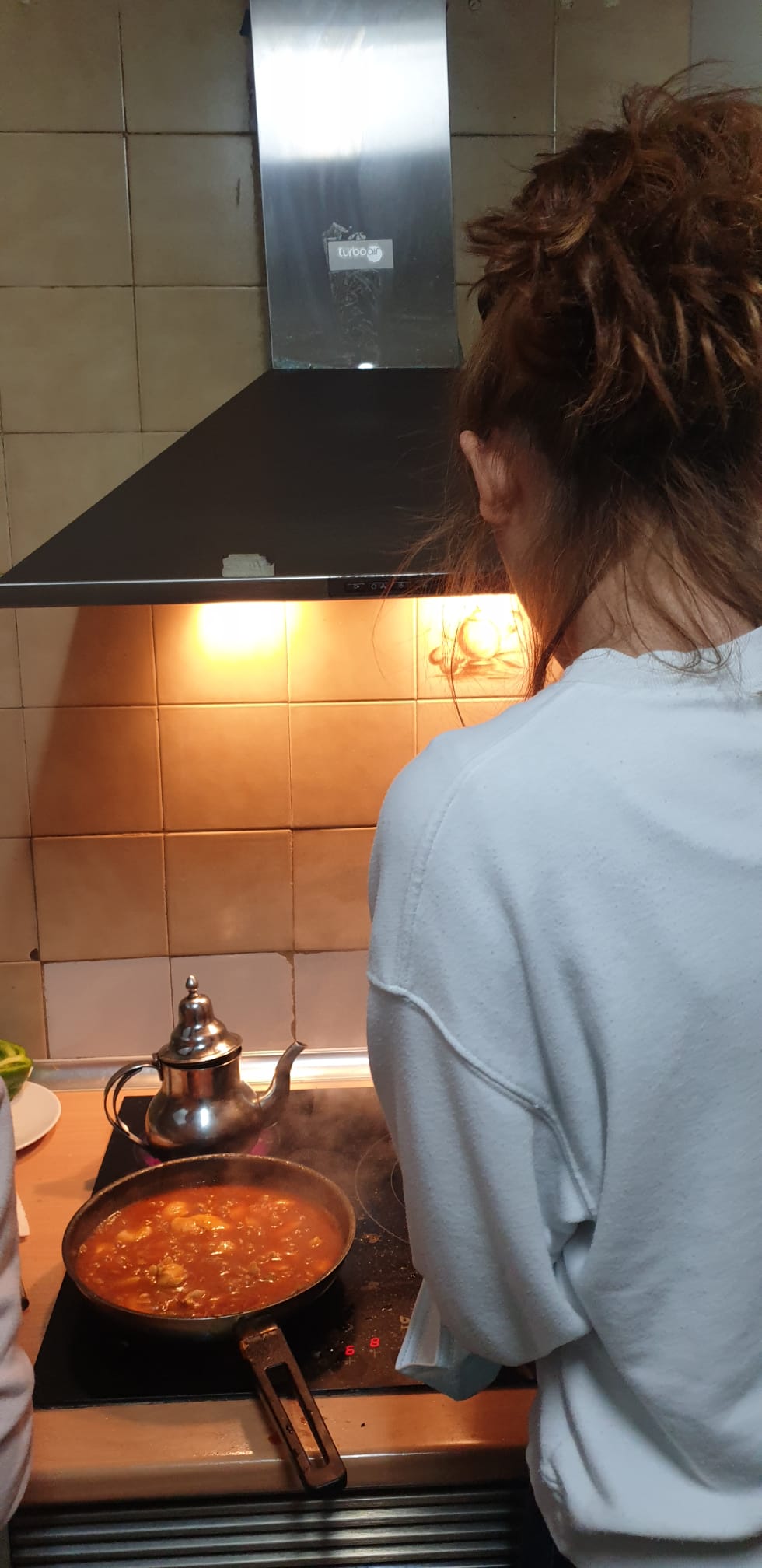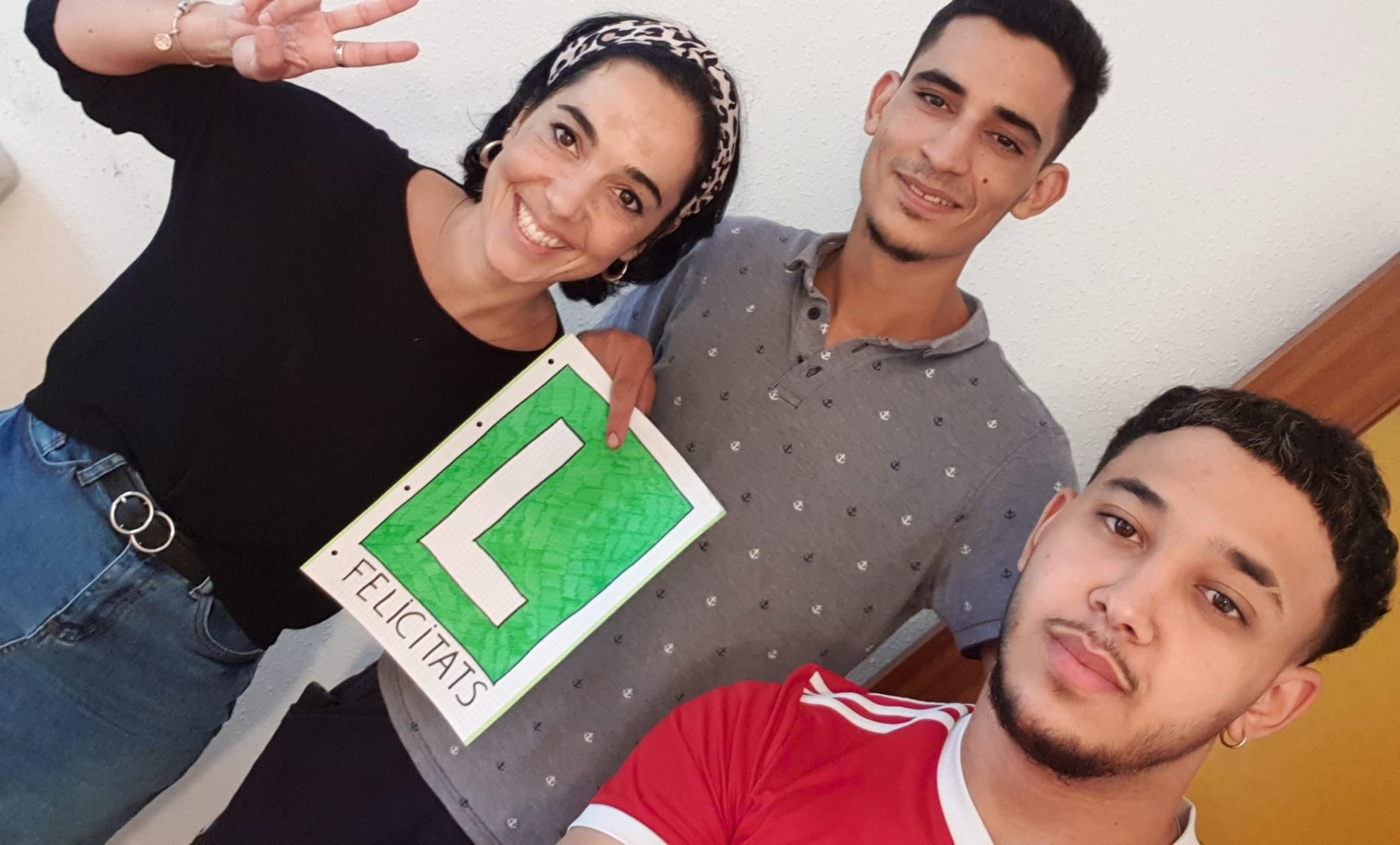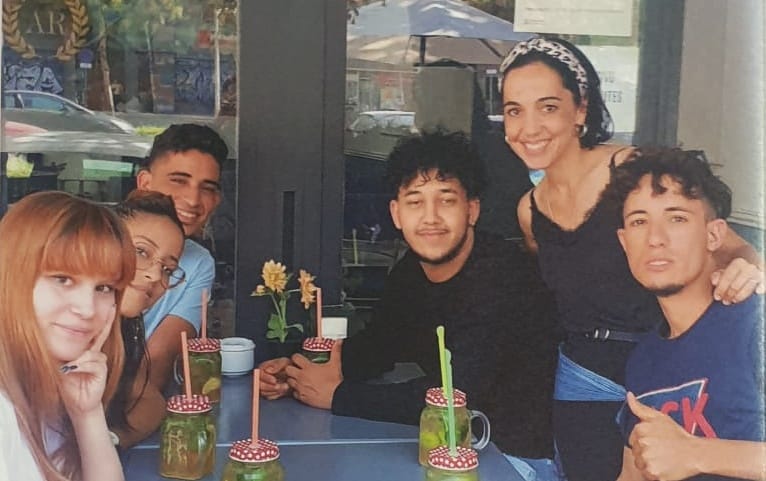“Working with young people from the emotional bond and the recognition that this generates is one of our pillars”
We talk with Laura Terradas, Mentoring Coordinator at Punt de Referència
By Sara Montesinos
- How would you define Punt de Referència in one word?
Network, Punt de Referència is network.
- What is your link with the entity? Tell us your story with Punt de Referència.
I arrived at Punt de Referència in April 2014. For me, at that time it was an important opportunity, I had studied education and pedagogy but without connection to the social sector. The person who interviewed me bet on me in this sense, the specialization would be learned in the organization.I started by covering a six-month leave and then they suggested I take over the projects Referents and Acull. Later, in 2017, I was asked to lead the coordination, we were growing as an entity, and I accepted. At the beginning of 2022 I became Mentoring Coordinator when the general coordination was divided into mentoring and housing. I also do consultancy training since the service was created in 2015; basically, we train other entities in the Referents methodology to accompany vulnerable young people through social mentoring.
- What differentiates you from other support projects?
We organize ourselves in work committees; we make proposals and adapt them according to the context and situation of the youngsters. For me there are two important aspects that differentiate us. Firstly, the work from the emotional bond, this is very easy to say and very complex to do. When I speak about an emotional bond, it is because we work from the technical side as well as accompanying through bonds of trust, working from here means that we focus on emotional health. The affective bond allows us to work on various perspectives, also self-esteem, self-concept, and self-expectations. All this is built through the gaze of others, which is why it is so valuable to work from the emotional bond in emancipation. Answering the question of who you want to be when you grow up can be done more strongly from the perspective of someone who trusts you and conveys it to you. Working from the emotional bond generates recognition, from here we can work on self-esteem and self-expectation. This is one of our pillars, working from the emotional bond and the recognition it generates. The other aspect that differentiates us is the community perspective, resilience is not just individual, it is also communal. Without a network or community, young people can hardly have the self-esteem or the opportunities to show their potential. Through the links we generate, they transform their perspective, transfer this learning to their immediate surroundings, share it in their network and raise awareness in their close environment, as well as in other young people and volunteers. They explain what they experience here and bring other young people. For me, this dimension sets us apart, but all this cannot be done alone; for this to be possible, all the training and support we provide to build the bond is very important. All this strengthens community from what is generated through the bonds and close networks. We also spur community through the network, we work with other entities to build it.
- What is the range of accompaniments and supports that young people can benefit from?
Young people who participate in Punt de Referència can do so with mentoring, from accompaniment to emancipation and/or to study. There is also housing support; foster homes, projects for other stages of emancipation and assisted flats. Finally, there is also participation, with projects such as Som Llavor, an audiovisual creation, and El Trajecte, a socio-educational accompaniment. These are the three lines we work with.
- Which have been the most successful projects?
When people ask me this, it’s Referents Project that comes to mind. It is the proposal that gave birth to Punt de Referènia 25 years ago and it’s still valid. Every year it has volunteers, and we take it to other territories, but the essence, the objective and the methodology remain valid after all these years. Sometimes there are educational or social intervention projects that are more circumstantial. However, Referents is timeless and that is a very strong point in addition, particularly, to the impacts it generates; results from the latest studies indicate that there are benefits for both the young people and the volunteers.
- And the main obstacles?
For me, the main hindrance are the resources. Punt de Referència has always succeeded so far, but to do the projects we do, financial resources are needed and to obtain them every year is a major effort. Building projects and sustaining them when you continue to bet on quality and not quantity it is complex nowadays and becomes quite a challenge in the economic sphere.
- What support network do you have?
We participate in several federations, in addition to working in a network with local entities. In Maresme and Vallès counties, for example, we have networked with local bodies and entities that were also working in the field, especially the cities of Mataró, Sabadell, and Terrassa. We are also part of federations that focus on advocacy, awareness, and generation of resources for professionals. We are the founders of the Social Mentorship Coordinating body and we are also part of FEPA, ECAS and the Catalan Foundation for Social Volunteering. Through these entities we also participate in the Third Sector Table.
- If you had to choose a moment, a memory…
A very recent one comes to mind… About six or seven years ago I met a young man who went through the whole process of referents, mentoring etc. At the time I was doing tutorials for the Trajecte project, he took part in group leisure activities and sometimes we had confronted one another on gender issues. Now it had been a long time since I had spoken to him, but he came to the celebration of the 25th anniversary of Punt de Referència. When we met, he said “I had to come see you!”, I thought it was nice. It is very meaningful for me and for Punt de Referència, sometimes you don’t know if the accompaniment creates a long-term impact and over time you see it does, clearly. An emotional bond was created which is what we really look for!
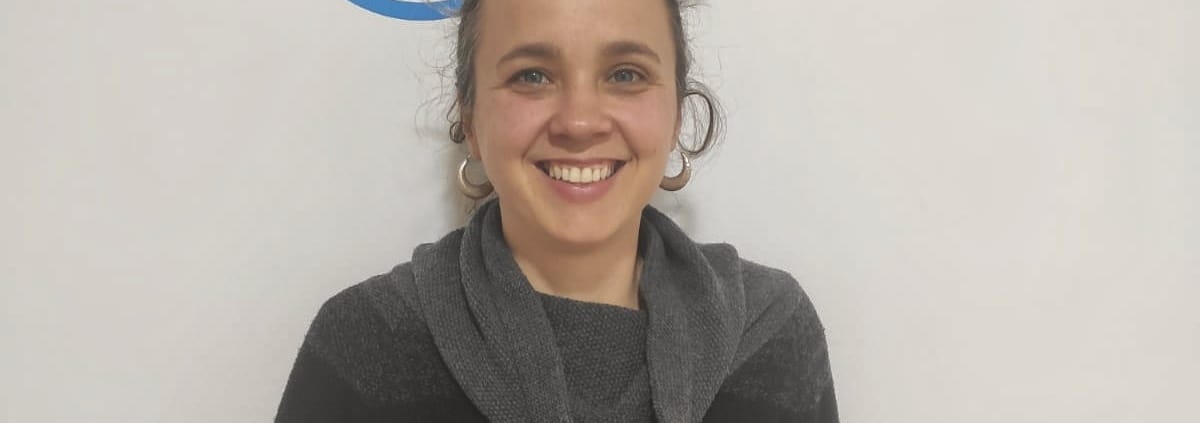
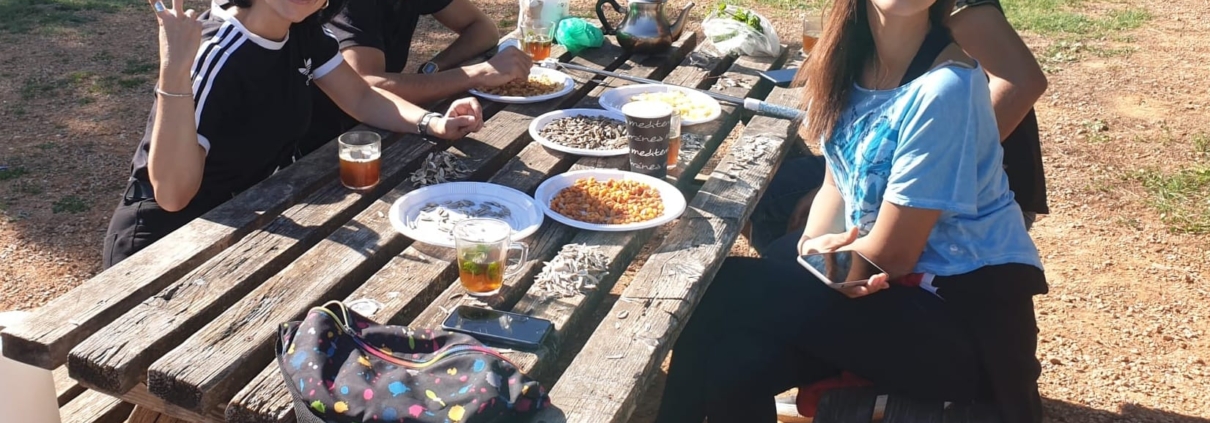
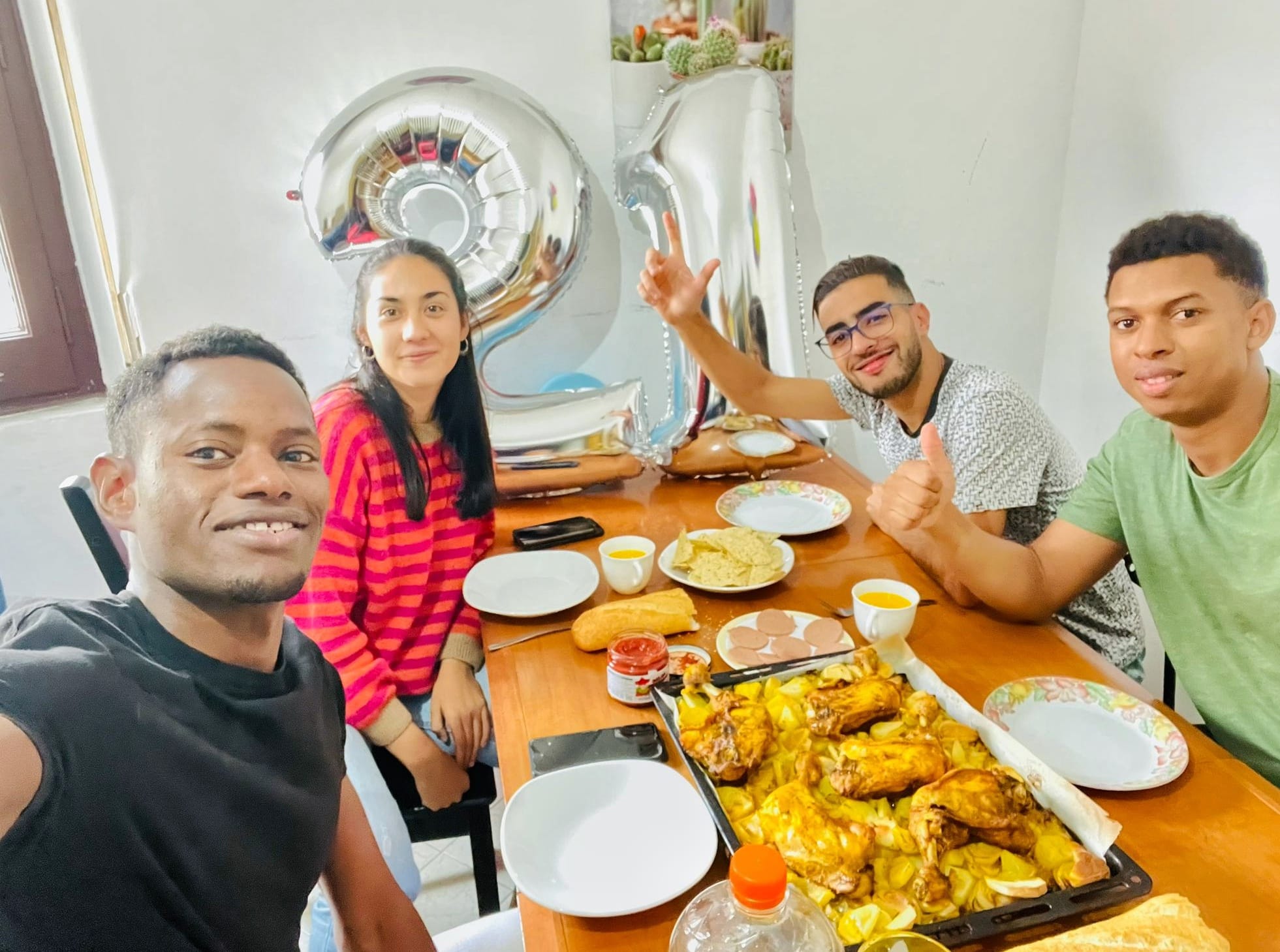 an assisted flat does not only mean living in a stable and welcoming space, above all it means being and feeling accompanied. It equates to having time for active listening and sharing. It means having an intimate and trusted space that an office does not offer. In a home it is easier to establish bonds. Additionally, emotional support promotes the development of emotional skills and good self-esteem, aspects that contribute to good mental health in young people.
an assisted flat does not only mean living in a stable and welcoming space, above all it means being and feeling accompanied. It equates to having time for active listening and sharing. It means having an intimate and trusted space that an office does not offer. In a home it is easier to establish bonds. Additionally, emotional support promotes the development of emotional skills and good self-esteem, aspects that contribute to good mental health in young people.